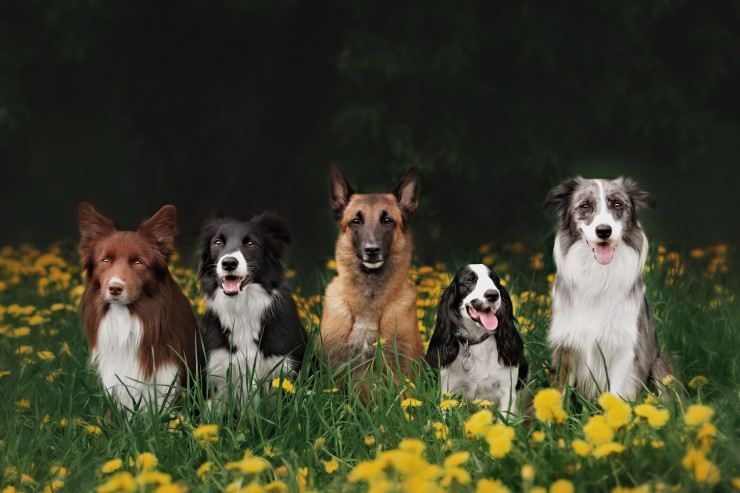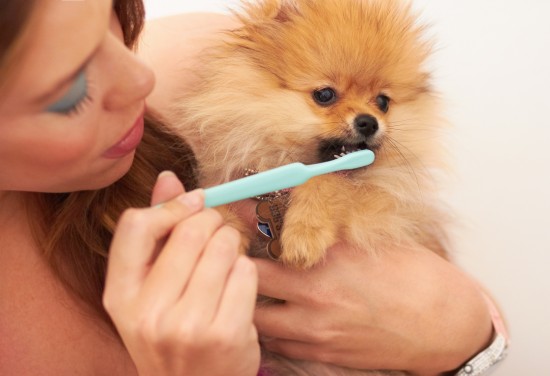
Rabbit Temperament
We love holland lops! I believe they are the greatest breed in
the world. Most of our herd will run to the front of the cage
when they see us. They love to be petted, and often lick us
affectionately. Each of our three daughters breeds their own
rabbits, including our eight year old. She will often carry her
8 or 9 week old kits around as though they babies, and the
bunnies absolutely love it.
Every rabbit we’ve purchased from a breeder has had good enough
temperament for us to breed and show. Unfortunately not all of
the bunnies in our barn have that temperament. We have rescued
several bunnies. One bunny we rescued is one that we are very
cautious around. We will never sell him nor will my daughters
use him in their breeding programs. He is very aggressive and
has bitten on several occasions. We will continue to care for
and love him, but his temperament is such that he would be a
risk to anyone that purchased or tried to breed him.
It’s funny to watch holland lops on the show table. They often
get very inquisitive. They will peak their heads over the side
of the box to see who their neighbors is. Sometimes they will
repeatedly hop out of the box as if to say, “hey judge, judge me
next!” Once in a while you’ll see a bunny that is nearly out of
control on the table, and difficult for the judge to assess. On
rare occasions you’ll see a holland laying in the back of the
judging box as if to say, “ho hum, another rabbit show.”
There is a great article on the Holland Lop Rabbit Specialty
Club site by Sylvia Hess called Holland Lops Personality. Sylvia
classifies the temperament of holland lops into three
categories. My favorite category is one she calls “cuddles”. I
think most of us would agree that this is the personality we
desire of all of our hollands as long as they stay inquisitive.
But how much emphasis should you put on temperament? How do you
get hollands with the cuddly personality that Sylvia talks
about? We decided to go to some of the top holland lop breeders
and ask them those questions. I think you will find their
responses helpful and informative.
Interview with Top Breeders
1. How would you describe the temperament you most want in
your holland lops?
Pam: I like a Holland that is very personable and loves
to show off on the show table, but is not so hyper that it
cannot be posed.
Laurie: I like a curious, interactive personality the
most. I love to see my rabbits investigating new toys and I
always want them to come forward in the cage to see me when I
visit.
Heather: The temperament that I like the most in my herd,
are more like me, hyper. My favorite rabbit in the barn is
extremely hyper. He will race back and forth in his cage until
you open the door, but as soon as you get him out, he is very
calm. He loves to snuggle and share ‘treats’ with me. I like the
hyper rabbits, but I also like the rabbits that will snuggle
with you, and it’s just a matter of luck to get both.
2. When considering temperament, do you put more emphasis
on rabbit selection or rabbit breeding?
Pam: Temperament should be a concern both when choosing
rabbits for your breeding program and when selecting rabbits to
breed from your own herd.
Laurie: I breed first and foremost for conformation to
standards. Then, from the resulting rabbits, I choose the ones
that I keep. I will not keep those with aggressive personalities
(those that bite with no warning or fight when held, even after
a period of adjustment). Luckily, I’ve had precious few of
those. I do not cull out rabbits that are not as interesting as
others personality-wise – not consciously at least – but I know
I’m drawn more to the curious, interactive rabbits just like I’m
drawn more to broken pattern rabbits. Over time, that has an
effect on the population of my barn.
Heather: I am most concerned about temperament when I am
purchasing a rabbit. I don’t want to add a new rabbit to the
herd that has a bad attitude and have to work extra hard to get
the rabbit to behave when I already have rabbits in my herd that
need to be worked with.
3. When purchasing a new rabbit, do you do any type of
evaluation of temperament, and if so what do you look
for?
Pam: We try to avoid hyper bucks that spray a lot and are
sexually aggressive. These bucks general don’t do well on the
show table because they won’t sit still, and these are the most
likely candidates for vicious tendencies.
Laurie: Temperament is very hard to evaluate when you are
purchasing a rabbit. Rabbits may behave at a show because they
are intimidated or misbehave because they are more excited than
usual. They may behave toward a man differently than they do
toward a woman. If I have concerns about a rabbit’s temperament,
I ask the owner for their assessment. I should not be purchasing
a rabbit from someone whose evaluation I cannot trust.
Heather: When I purchase a new rabbit, I take time and
really work with the rabbit, to see if it will let me hold it,
flip it over, or when I get it out of it’s cage, if it attacks
me. I don’t really want a fighter that won’t let me flip it over
or fights me when I try to hold it, or lunges at me with an open
mouth. Most of the time, a Holland Lop won’t display any of
these characteristics if they have been worked with a lot.
4. If you have a rabbit with what you consider poor
temperament, is there anything you do with that rabbit to
improve it individually?
Pam: I find that genetics play a large role in individual
temperament, although handling a rabbit will help calm their
“show table jitters”. When judging, it’s generally easy to pick
out the “first-timers” or those rabbits that have been handled
very little. They may try to bolt on the show table or are often
difficult to examine.
Laurie: I will tolerate poor temperament in a doe as long
as it is associated with high hormonal activity. I’ve had young
aggressive does turn into sweethearts after their first litter
or two is born and this has happened numerous times. But they
must come around at some point. I do not tolerate poor
temperament in bucks, however. With a buck that shows some
aggression, I place my hands over him and hold him down gently
for several minutes at a time. I am just trying to communicate
that I’m the big Kahuna around the barn and deserve more respect
than that. If he doesn’t come around with extra attention, then
he just can’t stay in my barn. Also, I refuse to pet out any
rabbit that I do not feel has a pet personality, so it is
definitely to his advantage to cooperate!
Heather: There are many things you can do to improve any
rabbit’s temperament. It helps to play with them everyday, just
petting them or holding them. Sometimes, if I am worried about
how my rabbit is behaving towards me or someone else, I carry
them around while I am feeding the rest of the rabbits, this way
they get familiar with you and get used to being held at the
same time.
5. When breeding rabbits, do you consider
temperament?
Pam: We do take temperament into account and avoid using
vicious animals.
Laurie: I don’t try to fix temperament with breeding.
Rabbits with poor temperament are just not part of my breeding
program. The exception is moodiness due to hormones in does,
once again.
Heather: Temperament is a tricky subject. I don’t want to
breed two rabbits that attack me together and pray that the
babies will all be friendly, but I don’t want to breed two
extremely hyper rabbits together either. I prefer to breed the
poor tempered rabbit to the hyper rabbit to get a calmer, less
mean version of the parents.
6. Is it possible to breed a poorly tempered rabbit with
one of good temperament and produce offsprings of a good
temperament?
Pam: There are many genetic influences on behavior as
well as environmental influences, so it is possible to produce
animals with good temperaments out of those with poor
temperaments. However, it is more likely to produce animals with
a pre-disposition to poor temperament when you use animals that
exhibit undesirable behaviors.
Laurie: It is not worth it to me to keep a rabbit with
poor temperament in my barn. So trying to fix it in a breeding
program would not come up. But, since my sweetest doe of all
times produced my meanest buck of all times, I’d say that it is
possible for things to go the other way around on an individual
rabbit basis. But what we need to concentrate on is trends.
Heather: I believe it is possible to breed out bad
temperament. If the breeding works out properly, the babies
should have a better temperament than the poorly tempered
parent.
7. In comparison to appearance, how much emphasis do you
put on temperament?
Pam: Type is the first consideration, but temperament
must certainly be considered.
Laurie: With a rabbit’s conformation, there is always
something that I’m working on. With temperament, either a rabbit
has an acceptable one or doesn’t. It’s apples and oranges. Would
I keep a rabbit with exceptional conformation that has a bad
attitude? I hope that never happens, but if it does, I hope I
have the resolve not to use him in my breeding program.
Heather: I believe that if a rabbit has a bad
temperament, but shows well, then it is worth keeping. However,
if the rabbit is putting you and others at risk, then the
behavior should be taken very seriously and dealt with.
8. Do you find that breeders as a whole need to put more
emphasis on temperament?
Pam: I think breeders have been doing a good job in
culling animals with poor temperament and producing high quality
show animals. I don’t personally know any breeders that will
tolerate a vicious animal in their herd.
Laurie: I think that there are as many different
temperaments in breeders as there are in rabbits. Some breeders
do not necessarily need a highly interactive rabbit to enjoy
their hobby, for example. Some breeders don’t care if their
rabbits snuggle. I think it is more important that you work with
the type of rabbit that you enjoy most. And it is probably best
to purchase stock from breeders who have similar views on
temperament to yours.
Heather: I believe that all breeders need to work on
temperament with their rabbits. I know that I don’t want to
reach into another person’s cage and get bitten. I don’t really
mind if my own rabbits bite me, because I know that I will work
with them later.
9. Would you like to give any closing thoughts regarding
temperament?
Pam: Temperament varies widely by individual. The nice
show-type Hollands that sit up on the table are generally more
high-strung than the Hollands with a low head mount that sit
close to the table.
Laurie: I also want to mention that I take responsibility
for being nipped if I frighten a rabbit. Sometimes we get busy
with our chores and don’t realize that we’ve reached into a cage
and scared a sleeping rabbit. Temperament is much more long-term
than a single behavior. I don’t hold the actions of a scared or
upset rabbit against him. Breeding rabbits is a hobby and should
be enjoyable. Don’t work with rabbits you do not enjoy spending
time with. It’s just not worth it.
Heather: Some rabbits don’t like certain people. I have
one rabbit that will attack everyone but me. There are other
rabbits that will try anything to get their teeth into me, but
never bite anyone else. They are just like people. They want to
choose who they are associated with.
Thank you to each of our participants. I trust that you will
find their answers insightful as you raise and breed your own
herd of holland lops.
Our Expert Panel
Pam Nock. Pam is both a breeder and an ARBA judge.
Visitors to many rabbit forums know the name Pam Nock. She
spends a great deal of time sharing her knowledge with rabbit
breeders and pet owners alike, much of which she does through
the rabbit forums. She has been a great help to us on many
occasions. We owe a lot of thanks and gratitude to Pam for her
excellent advice. You can visit her website at http://www.geocities.com/
pamnock.
Laurie Stroupe. Laurie’s web site The Nature Trail is
the primary website we go to for rabbit raising information. Her
site has a wealth of information, including her new blog which
she adds to on a daily basis. Whether you are a new pet owner or
an experienced rabbit breed, you will find Laurie’s site very
helpful. Laurie had the top Broken Senior Buck at the 2005 ARBA
convention in open. Her latest project is Precious Pet
Rabbits, a website for pet rabbit care information.
Heather Washburn. Heather is one of the top youth holland
lop breeders in the country. I remember sitting at one of our
first rabbit shows. We had no clue what we were doing. I looked
past my family and saw a young lady grooming one of the most
incredible holland lops I had ever seen. The rabbit to me was
perfect in appearance and in temperament. That rabbit won best
of breed that day. The Washburns were great to talk to as we
were newbies, and they were very friendly. Heather is a member
of the OHLRF and the HLRSC. Most recently Heather’s rabbit took
BOB at the 2005 ARBA convention in youth. Her website can be
seen at http://www.geocities.
com/washrabbit/.
 22 Interesting Facts About Different Dog Breeds
22 Interesting Fa
22 Interesting Facts About Different Dog Breeds
22 Interesting Fa
 The Known Factors That Contribute To Canine Temperament And Behaviour
The Known Factors
The Known Factors That Contribute To Canine Temperament And Behaviour
The Known Factors
 Dogs Made For Swimming
Dogs Made For Swi
Dogs Made For Swimming
Dogs Made For Swi
 Improving Your Dog’s Dental Health For Life
Improving Your Do
Improving Your Dog’s Dental Health For Life
Improving Your Do
 Manchester Terrier Vs Miniature Pinscher - The Differences
Manchester Terrie
Manchester Terrier Vs Miniature Pinscher - The Differences
Manchester Terrie
Copyright © 2005-2016 Pet Information All Rights Reserved
Contact us: www162date@outlook.com